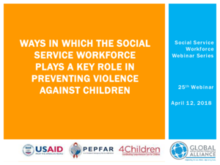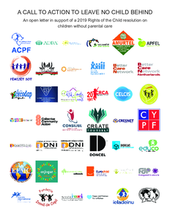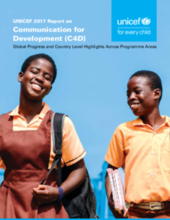Displaying 2141 - 2150 of 4431
This is a series of briefing notes for UNICEF regional and country offices on SDG indicators. The first note summarises the development and implementation of the SDG global indicator framework and UNICEF’s role in supporting member states to collect, analyse and report on child-related SDG indicators at national and global levels.
This article from Freedom United highglights the ways in which Australians, through tourism and donations, are contributing to the fueling of the orphanage industry in Southeast Asia, and the moves the Australian government is making to address this.
The Handbook of Adolescent Development Research and its Impact on Global Policy aims to fill critical evidence gaps to speed evolution of better policy-making specifically tuned to this dynamic life stage.
This webinar reviewed the findings from the 2017 State of the Social Service Workforce Report and made recommendations for strengthening the workforce to achieve the Sustainable Development Goals.
This report from the UN Special Rapporteur on the right of everyone to the enjoyment of the highest attainable standard of physical and mental health calls for an end to the use of detention and confinement as a tool "to promote public safety, “morals” and public health."
This talk, given by Dr Charles Nelson, focuses on two strands of work that reflect very different types of adversity: (1) the effects of early, profound psychosocial deprivation (including a review of the most recent findings from the Bucharest Early Intervention Project, a randomized controlled trial of foster care as an intervention for early institutionalization in Romania) and (2) the effects of growing up in a low resource urban center where children are exposed to a large number of both biological (e.g., malnutrition) and psychosocial (maltreatment) stressors (including a review of recent findings from a large study taking place in Dhaka, Bangladesh).
Developed with Columbia University and experts from the Lancet Commission on Adolescent Health and Wellbeing this series of briefs from UNICEF Innocenti provides a much needed review of contemporary research methodologies for adolescent well-being in low- and middle-income countries.
This video from the Global Journalist takes a "a look at the debate around institutional child care in developing countries and what might be perpetuating the problem of overseas orphanage scams."
The signatories of this open letter (including SOS Children's Villages, Better Care Network, and other partners) seek your support in calling for the 2019 United Nations General Assembly resolution on the Rights of the Child to focus on children without parental care.
The following report summarizes how UNICEF and its partners have utilized Communication for Development strategies in their work during the period of UNICEF’s Strategic Plan 2014-2017, with an emphasis on 2017.




